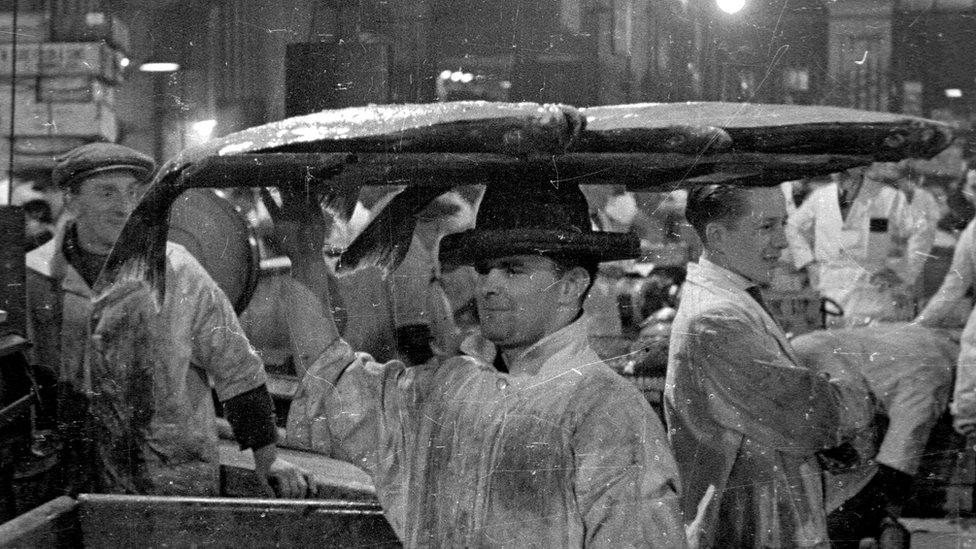London's past times pastimes
- Published
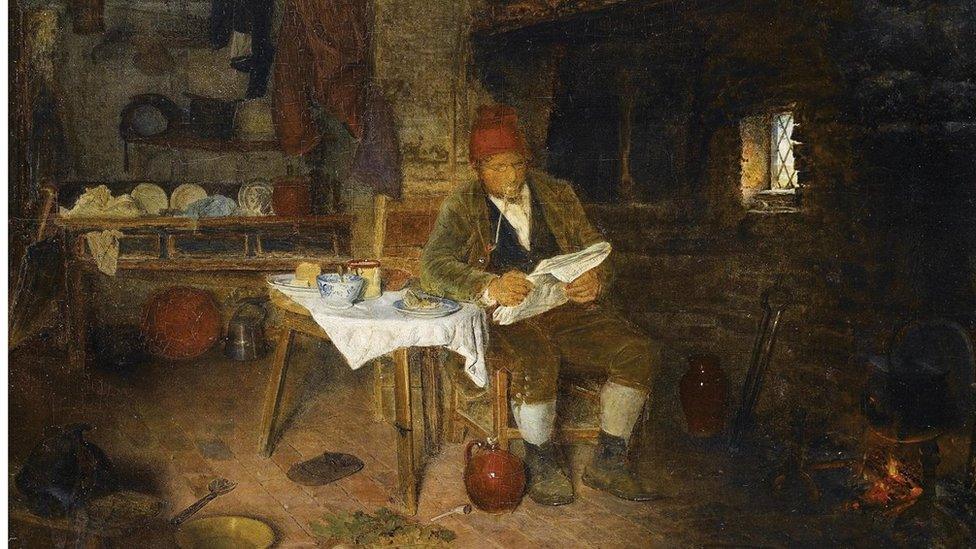
Scanning the "what's on" pages of the local paper
Occupations evolve over the years, whether as a result of innovation or the vagaries of public demand. And hand in hand with the changing landscape of earning a living goes its more entertaining sisters - hobbies and pastimes.
It is easy to see the modern iterations of beer shops and dancing rooms; street jugglers and stilt walkers aren't unusual sights in touristy areas - but when did you last toss the pieman or swallow a snake?
Here are some of the activities that have sadly (or not so sadly) left London.
Mummy unwrapping
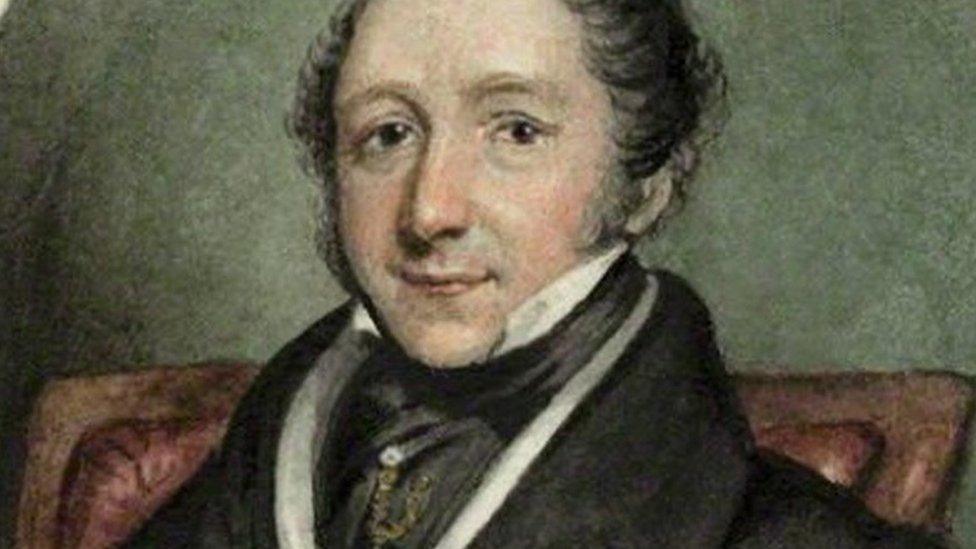
The face of a man who doesn't believe in ancient Egyptian curses
A pastime unlikely to be approved by present-day Egyptologists (or in fact anyone), unwrapping mummified bodies in front of a paying audience, was seen as top-notch entertainment.
The best-known mummy unroller of this period was the surgeon Thomas Pettigrew, who also went by the giveaway sobriquet "Mummy" Pettigrew.
Tickets were sold - including in 1864 at the Royal College of Surgeons - for sessions which Pettigrew himself described as requiring "considerable force to separate the layers of bandage from the body... and levers necessary to raise the bandages".
The body was presented on a table surrounded by the symbols of Egypt including funerary hieroglyphics. The unrolling itself involved separating the different layers of bandaging, removing amulets from their layers as progress was made, eventually revealing the body itself.
Observations would be made then by Pettigrew regarding body decorations, presence of hair, pliability of skin and possible ethnicity.
Souvenirs of the event were distributed afterwards - pieces of body for the VIPs and bits of the wrapping for the less well-regarded.
A piece of linen from the mummy of Horseiri, the son of Naspihiniegosi, an incense bearing priest in the Temple of Amun at Thebes, is held by Southwark heritage and archives, external. It has been framed under glass, and sealed with red silk.
Penny profile cutting
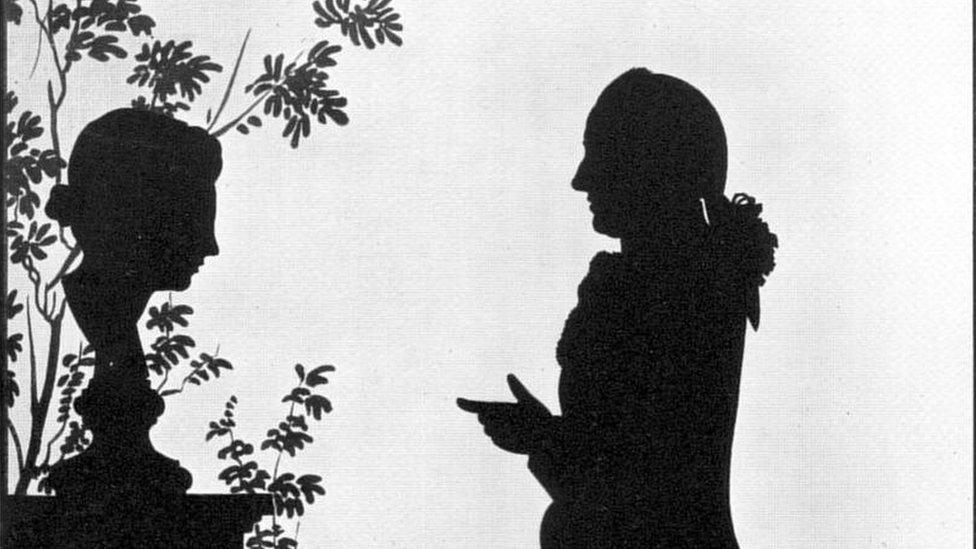
"Are you sure this is the most flattering light?"
Less exciting - and less disrespectful of the dead - was the trend for getting oneself immortalised by a profilist, or silhouette-cutter.
Infinitely cheaper than a painted portrait, the images would be created by tracing a person's profile on to a piece of paper and then cutting it out. The resulting silhouette was then mounted on a light-coloured card.
One profilist, interviewed in 1851, said: "I had to shout out 'step inside, ladies and gentlemen, and have a correct likeness taken for one penny.'
"They were not all penny likenesses, because, if we put the likeness on card we charged 2d., and if they was bronzed we charged 6d., and if they were framed complete, 1s."
Admiring birth abnormalities
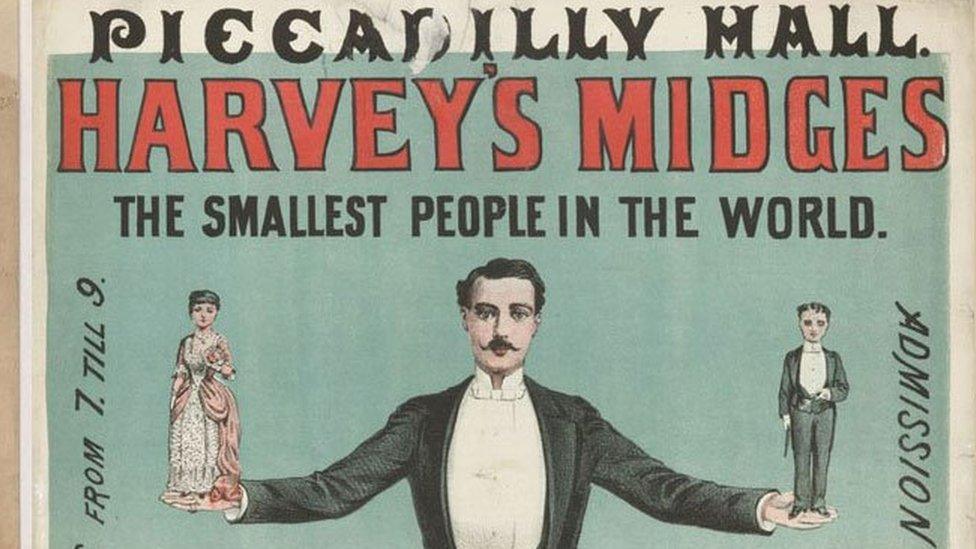
Some of the stars of so-called freak shows might have had their differences slightly exaggerated
Archive posters kept by the British Library illustrate the popularity of the "freak show" when people flocked to stare at unusual examples of human life.
Exoticisms such as mermaids and bear boys drew the greatest crowds and were often established in a permanent exhibition, including at London's Egyptian Hall, external.
One great favourite was a woman who had no hands or fingers, but used to crochet using her feet. She travelled all over Europe and was invited into the homes of rich people.
Gawkers unwilling to stump up for an indoor exhibition could get their kicks on the street instead.
Journalist and social commentator Henry Mayhew interviewed a 61-year-old man in the 1850s "with an intelligent look and good manners" who described himself as "the writer without hands".
"I was born without hands — merely the elbow of the right arm and the joint of the wrist of the left. I have rounded stumps. I was born without feet also, merely the ankle and heel, just as if my feet were cut off close within the instep.
"I came to London in 1814 and took to making fancy screens with a popular saying on. I put the date and my name at the end and that it was written by a man with no hands.
"There's three men I know who write without hands. They're in the country chiefly, travelling. One man writes with his toes, but chiefly in the public-houses, or with showmen. I consider that I am the only man in the world who is a handicraftsman without hands or feet.
"I am married, and have a grown-up family. Two of my sons are in America, one in Australia, one a sailor, the others are emigrants on the coast of Africa, and one a cabinet-maker in London — all fine fellows, well made. I had 15 in all. "
Snake swallowing
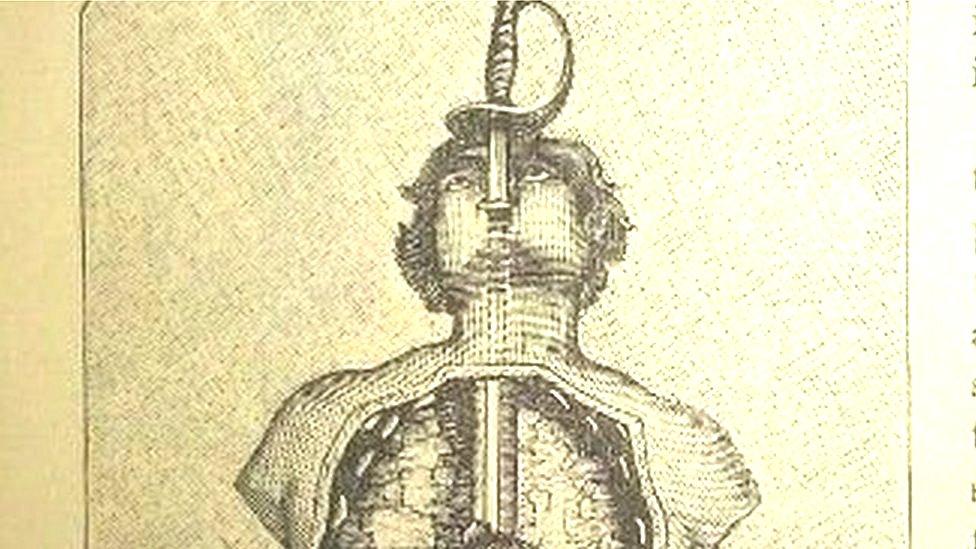
Snake-swallowing was for those who found sword-swallowing a bit namby pamby
If getting a paper cutout of yourself was not providing adequate thrills, perhaps a jaunt to a snake swallower could do the business.
A young man described his activity: "I first holds the snake up in the air and pinches the tail, to make it curl about and twist round my arm, to show that he is alive.
"Then I holds it above my mouth, and as soon as he sees the hole in he goes. He goes wavy-like, as a ship goes, that's the comparison. You see, a snake will go in at any hole.
"In my opinion he is more glad to come up than to go down, for it seems to be too hot for him. I keep him down about two minutes. If I breathe or cough, he draws out and curls back again.
"I'm the only one in London who can swallow a snake. There's nobody else besides me. It requires great courage. I've great courage".
Modest, too.
Tossing the pieman
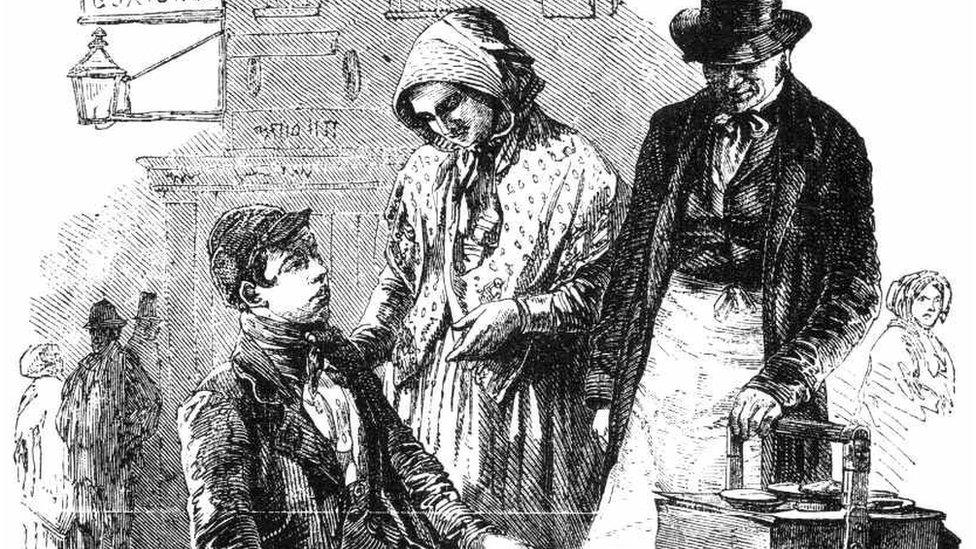
"If I don't win this pie I'll have to eat another snake"
A favourite pastime with young lads was tossing the pieman. A coin is flipped - if the pieman won the toss, he receives 1d. without giving a pie; if he loses, he hands it over for nothing.
One pieman said "gentlemen 'out on the spree' at the late public-houses will frequently toss when they don't want the pies, and when they win they will amuse themselves by throwing the pies at one another, or at me."

Follow BBC London on Facebook, external, Twitter , externaland Instagram, external. Send your story ideas to hellobbclondon@bbc.co.uk
Related topics
- Published30 December 2021
